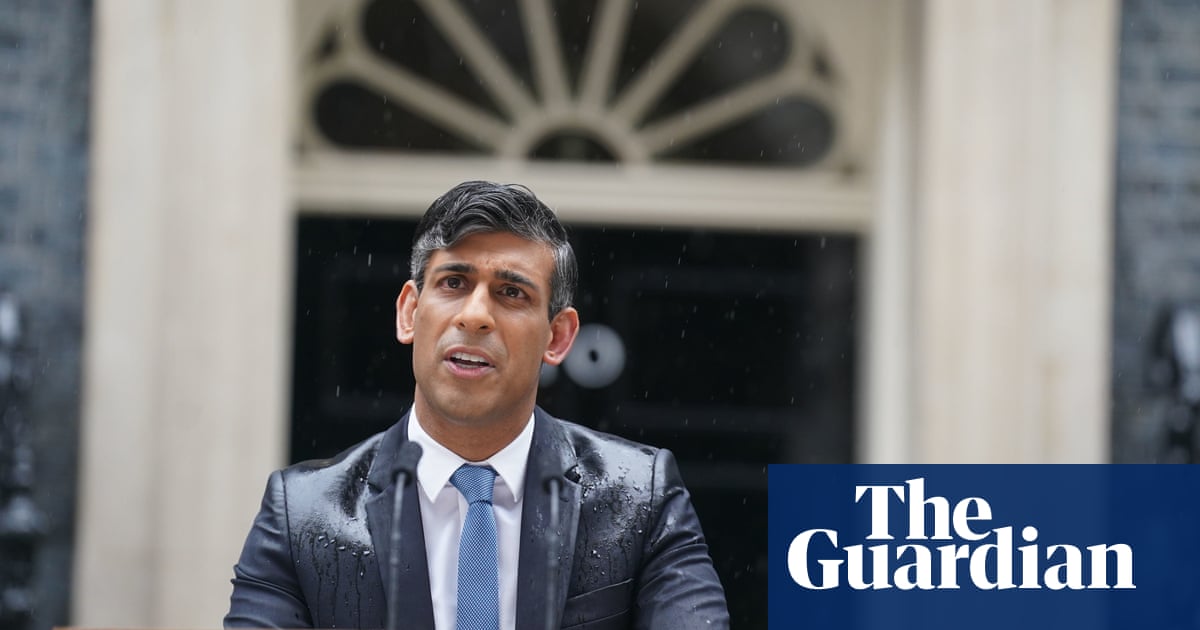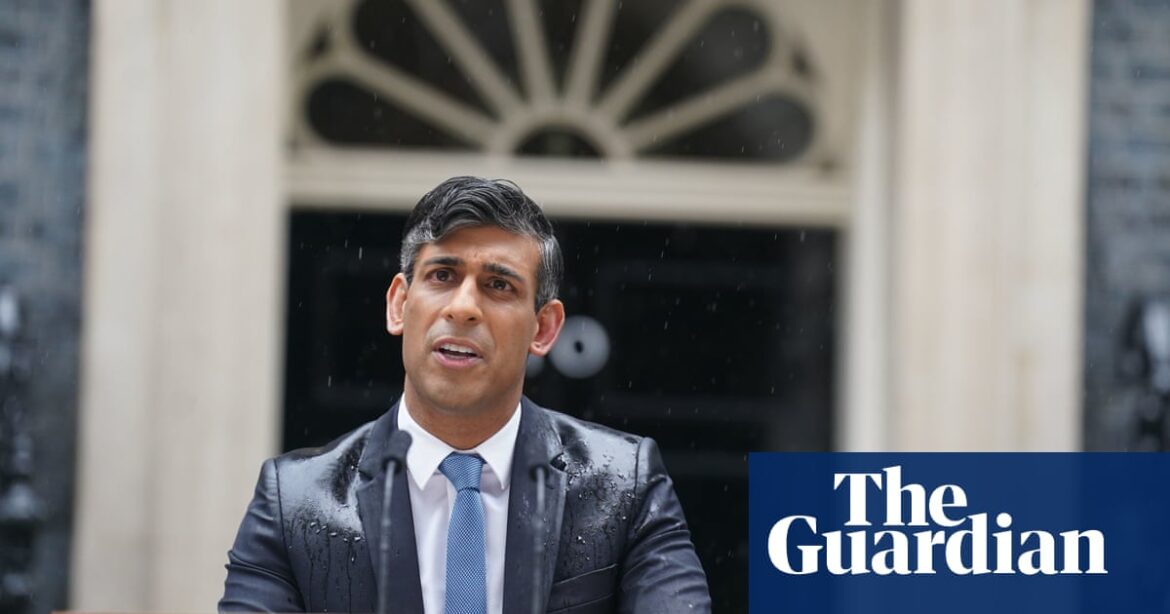
One of Rishi Sunak’s close protection officers has been arrested over alleged bets about the timing of the election.
The officer was arrested on Monday on suspicion of misconduct in public office, the Metropolitan police said in a statement.
The news comes a week on from the Guardian’s revelation that Rishi Sunak’s closest parliamentary aide, Craig Williams, had placed a £100 bet on a July election just three days before the prime minister named the date.
As a result of that incident, the Gambling Commission conducted a wider investigation and found information that led to the decision to investigate the officer.
The Metropolitan police said they were contacted last Friday by the Gambling Commission, which informed the force that it was investigating alleged bets related to the timing of an election by a constable from the Met’s royalty and specialist protection command.
“The matter was immediately referred to officers in the Met’s directorate of professional standards, who opened an investigation, and the officer was also removed from operational duties,” the force said.
The matter has also been referred to the Independent Office for Police Conduct (IOPC), the watchdog responsible for overseeing the system for handling complaints made against police forces in England and Wales.
The Met added: “The Gambling Commission continues to lead the investigation into the alleged betting offences, and our investigation is running in parallel to that.”
The Guardian reported last week that the Gambling Commission had launched an inquiry after Williams, the prime minister’s parliamentary private secretary, placed a bet with the bookmaker Ladbrokes on Sunday 19 May in his local constituency of Montgomeryshire and Glyndŵr.
Williams said in a statement last week: “I put a flutter on the general election some weeks ago. This has resulted in some routine inquiries and I confirm I will fully cooperate with these.
“I don’t want it to be a distraction from the campaign, I should have thought how it looks.”
The Gambling Commission has asked bookmakers to trawl through all substantial bets placed on a July election after it was flagged that Williams had put the wager on the poll date just days before it was announced.
On Wednesday night the BBC reported that a second Conservative candidate is being looked into by the Gambling Commission over an alleged bet relating to the timing of the general election.
Laura Saunders is the Conservative candidate in Bristol North West and has worked for the party since 2015. It is not known how large the bet was or when it was placed.
A Conservative party spokesman told the BBC: “We have been contacted by the Gambling Commission about a small number of individuals. As the Gambling Commission is an independent body, it wouldn’t be proper to comment further, until any process is concluded.”
Members of the Met’s royalty and specialist protection command operate in close proximity to the prime minister and his team, often sharing the same vehicle. The elite armed unit is composed of officers supposedly handpicked for their skills as well as their integrity, given the sensitivity of the people they guard.
As well as guarding select senior ministers and the mayor of London, they provide close protection for the royal family.
Asked about the police officer, a spokesperson for the Gambling Commission said: “Currently the commission is investigating the possibility of offences concerning the date of the election. This is an ongoing investigation, and the commission cannot provide any further details at this time.”
Downing Street declined to comment, referring inquiries to the Met’s statement.
The Liberal Democrats have called on the prime minister to launch a full inquiry. The party’s deputy leader, Daisy Cooper, said: “Rishi Sunak must call a Cabinet Office inquiry into what is shaping up to be yet another scandal at the heart of government.
“An inquiry is needed to understand who knew what and when.”
An IOPC spokesperson said: “We have received a mandatory referral from the Metropolitan police service and will make a decision on the level of IOPC involvement in due course.”
Any decision on charges and whether any criminal offence may have been committed would be made by the Crown Prosecution Service.
Misconduct in public office is a criminal offence contrary to common law rather than statute and thus the elements of the offence are to be found by interpreting previously decided cases, rather than by interpretation of an act of parliament, according to CPS guidance.
For the offence to have occurred, the suspect needs to be a public official, with the action in question having taken place during the course of their duties.
The action also needs to have been wilful, done on purpose, and to such a degree as to amount to an abuse of the public’s trust in the office holder.
The final key element is that the suspect has no reasonable excuse or justification for the action in question.
Source: theguardian.com



